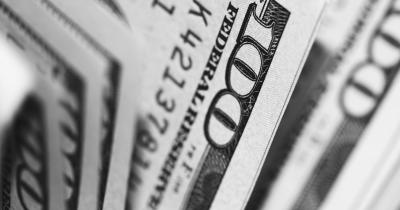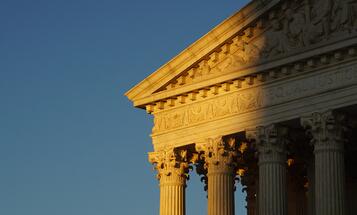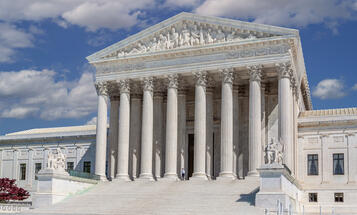
Empirical Evidence that Money in Politics Matters
Candidates who can raise money early and up front early in a campaign are more competitive than those who do not.

Two questions stand out in discussions regarding the role of money in politics. The first is a legal question: Is money speech? The second is a political science question: Does money really matter in elections, and if so, how? Both are significantly contested questions, of which the answers to them provide significant implications for the regulations of elections in American politics.
Last May Demos convened legal and political science scholars from across the country at the University of Pennsylvania Law school to debate both questions. A by-product of that meeting was production and publication of a collection of articles in the March 2017 Election Law Journal under the symposium title “Beyond Corruption: New Approaches for Regulating Money in Politics.” Many of the articles explored alternative legal theories and interpretations to justify regulating money in elections beyond the restrictive framework articulated in the 1976 Supreme Court Buckley v. Valeo: the case that gave us the money is speech argument, and confined campaign finance reforms to those addressing corruption (but not, for instance, those addressing political inequality). But two of the symposium articles stood out in terms of offering an empirical examination of whether money actually matters in elections and how. One article was “Professional Networks, Early Fundraising, and Electoral Success” by Professor Adam Bonica, the other “Regulation and Upper Class Bias in Campaign Finance System” by Professor Christopher Witko.
Empirical political science research into the role of money in politics is important. At least in theory, if Congress or legislatures can support legislation with empirical data and facts, courts are supposed to give significance deference to those findings when evaluating its constitutionality. If empirical political science can document the role and way money impacts campaigns and elections, then that information should inform legislation and provide rationales for regulation. Thus, empirical political science can help inform and frame an answer to the legal question is money speech.
Much of the empirical research on money’s impact on American politics is hopelessly inconclusive. One line of research tries to connect dollars to votes. This strategy fails for two reasons. First, not all money goes directly to candidates–in fact, only a small percentage does–making it hard to make that connection. Second, correlation does not imply causality–it is near impossible to prove dollars sway votes. Third, these studies often try to make assertions about how money individually corrupts candidates or votes, without considering the broader structural impacts or biases that the money has. What Bonica and Witko have done is to move the empirical research beyond these three problems.
Adam Bonica’s piece examines the issue of timing in terms of money’s impact. Specifically, it explores how viable or competitive a candidate is by looking at the timing of the fundraising. Specifically, his research shows that candidates who can raise money early and up front early in a campaign are more competitive than those who do not. Early money invites more money; it creates scenarios where a candidate can better demonstrate viability. But what enhances early fundraising? Bonica finds that strong donor networks do. More specifically, it is how well candidates are networked in general: their “social capital” as political scientist Robert Putnam might call it. Individuals socially connected to people with money have advantages in raising early money, which in turn makes them more viable as candidates. But this disproportionately excludes the poor, people of color, and women. One conclusion of Bonica’s article is to argue for campaign finance scholarships, early seeding of money for qualifying candidates who wish to run for office but whose networks are deficient in their capacity to generate early money.
One difficultly in testing the role of money in political campaigns is fairly evaluating how different regulatory regimes would function. For example, what would happen if in federal elections there were no contribution limits, or if certain categories of donors were restricted in their ability to give? Simply changing federal law might not give us an answer and it is literally impossible to set up a controlled experiment. However, the 50 states are natural laboratories of democracy, each with its own regulatory regime. Examining variation among them can provide important data about money in politics. This is what Christopher Witko has done in his piece for the symposium. He examines the impact that state laws banning or otherwise regulating campaign contributions and expenditures by corporations and labor unions have on the political influence of what Witko defines as upper class actors. By upper class he means business groups, professional associations, and labor unions. He finds that states that more tightly regulate these groups have less bias in favor of the political upper class. In other words, these groups are less mobilized in states that regulate corporate and union contributions and spending.
Witko’s research have multiple implications, but most importantly it shows a connection between who can give and who is advantaged politically in terms of whose voices get mobilized and heard. Contrary to critics who argue that the only fair and neutral campaign finance system is one that deregulates all restrictions, Witko’s research shows that there are no neutral financing systems, and the ones that articulate no limits actually bias the political agenda in favor of certain wealthy or already-advantaged interests.
The implications of the Bonica and Witko articles is that money matters. Those with money or access to networks of money are currently favored, biasing the political agenda to their favor. The empirical research in these two articles thus provides evidence for regulation of the political use of money to ensure equal access to democracy. Hence, they go a long way toward supporting the proposition that promoting equality or combatting inequality ought to be considered a compelling government interest justifying limits on political contributions and expenditures.




